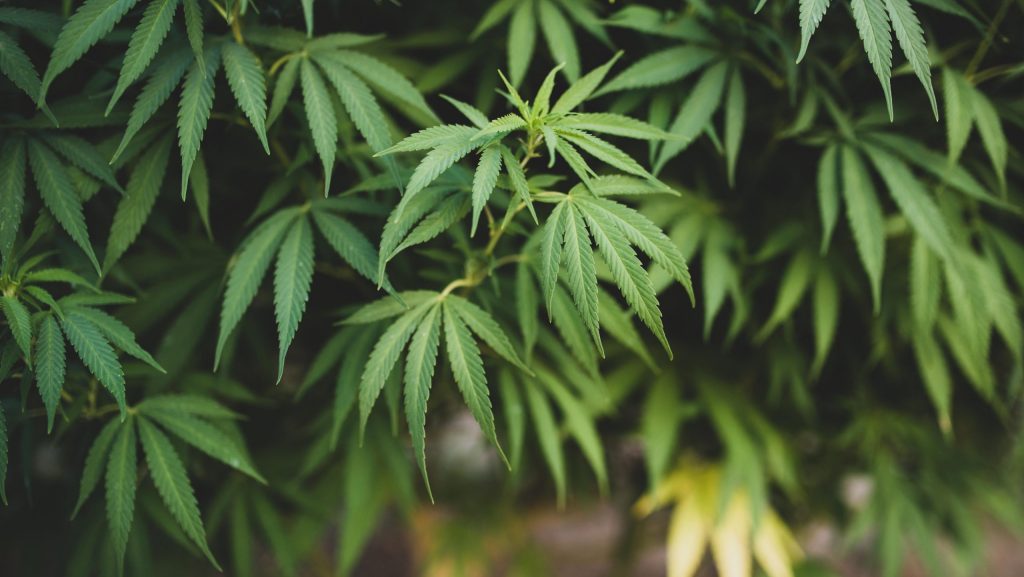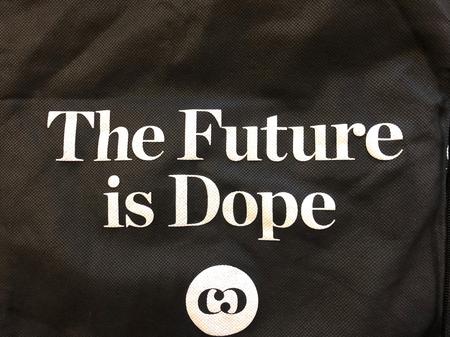What’s Greener in Michigan’s Marijuana Industry — The Bud or the Money?
Investors and entrepreneurs are looking to get rich off of Michigan’s green rush.


Marijuana in Michigan was fully legalized last year and a lot has been going on behind the scenes ever since. The state is readying itself for a bump in production and sales as investors and entrepreneurs looking to make the most of the pot boom. Many attend the Benzinga Cannabis Capital Conference as an opportunity to network. That includes former Detroit Lions wide receiver Calvin Johnson.
“We’re a vertically integrated company so we’ll have retail, dispensary, we’ll have processing and we’ll have cultivation,” Johnson says about his cannabis brand – Primitive. “It’s been a medicine that’s been here since the beginning of time. We say it’s the original medicine.”
Johnson originally started his post-NFL career in real-estate, finding properties in Michigan zoned for cannabis production. As his partner and former teammate, Rob Sims explains, it made sense to get in on the action themselves.
“Michigan is regarded as the number two medical market. Recreational market is going to boom here as well,” Sims says. “I think that’s why we’re in a position where we don’t feel like we need to rush, we just need to make sure we put out the best product possible.”
The two have been able to secure some impressive backers. Primitive is working with a Harvard Medical School group that studies the medicinal properties of plants. Sims says the partnership will allow Primitive to explore treatments for CTE, or chronic traumatic encephalopathy, which affects many football players.
“We think we’re not only going to help ourselves but other players in the NFL and other people that have cognitive diseases,” Sims says. “We got a great opportunity here, and we just got to make good on it.”

Sims and Johnson could be the biggest names in Michigan getting into the cannabis industry, but they’re hardly the only people pivoting to pot.
“I see a lot more suit coats here than I thought. I thought I’d see more tie-dye t-shirts and dreadlocks,” says geologist Russell Schindler, who started his company, SampleServe, to digitally track environmental samples between sites and labs. Now, he’s looking to do the same for marijuana testing.
The conference has attracted a lot more people you’d expect to see on Wall Street than in a head shop. That includes Abi Tamot, who works in business development for Fortuna Investments, a Canadian venture capital firm. Tamot says Michigan’s cannabis industry has some unique characteristics.
“You can still charge a premium, right now, today, for dry flower in Detroit versus Colorado, California, Ontario, [British Columbia,]” Tamot says. “You can’t do that anymore there because you’re seeing margin compression. You’re essentially facing commoditization.”
In other words, there’s not enough marijuana here in Michigan. Because of that shortage, local growers have the upper hand when it comes to selling their product. Tamot says there’s money to be made when supply is low, and demand is high.
“The profit margins in Detroit, what I’ve seen from the companies that I’ve chatted with, are significantly higher than what I’ve seen in Colorado and California,” Tamot says.
It’s a good time to be a licensed grower in Michigan. Just ask Joe Neller, the co-founder and chief government affairs officer of Green Peak Innovations, which has the largest plant count of any company active in Michigan.
“We currently have 18,000 plants,” Neller says. “And we operate 76,000 square feet of manufacturing space in the Lansing area.”
Picture this: Green Peak Innovations’ grow operation could take up half of a Meijer supercenter. The company does more than cultivate cannabis. It makes extracts and edibles too. Neller says Green Peak is even partnering with Short’s Brewing Company to make drinks.
“Sparkling waters, cold brew coffees, lemonade, teas. All sorts of beverages,” Neller says. “When the regulations and the laws allow for it, we will eventually look to infuse some of their existing craft beers.”
It’s the first partnership between a brewery and a cannabis company in Michigan, and it’s another sign of how legal marijuana is merging with existing industries, finding audiences beyond patients and current users. Long-time advocate and attorney Matthew Abel says Lansing hasn’t always been on the right footing when it comes to introducing marijuana to the market.
“The Snyder administration kind of did a ham-handed roll out of this program,” Abel says. “The proper way to do it would have been to license the growers first since the product takes three or four months to grow it, harvest it, and cure it.”
Abel says it’s still hard for large-scale growers to get licenses.
“For another two and a half years or so, we’re only going to have companies which already have medical licenses eligible for the [recreation] except for the two smallest licenses,” Abel says.
And there’s the issue of criminal records. Thousands of people in Michigan are still dealing with the onus of past marijuana convictions, whether they’re in prison, on probation, or applying for a job. Voter-approved legalization did not erase those crimes. That’s an issue for the reformed grower or dealer who got arrested when the business was still bootleg. They won’t be able to apply with the state, if they’ve been convicted within the past five years. Abel says the next step in reform is to clear those records.
“It would help a lot of communities and a lot of people if we could get expungement passed so that people could remove those criminal offenses from their records and then be eligible to hold licenses,” Abel says.
The Michigan Regulatory Agency is trying to fix the problem through its social equity program. The strategy concentrates on communities with disproportionate rates of marijuana-related convictions and poverty such as Detroit, Flint, and Muskegon. The program provides resources for applicants, with bonuses for past marijuana offenders to reduce fees for licenses. Alexis Jackson wants to apply, as she looks to enter the industry.
“I work in an adult foster care home. I work with mentally and developmentally challenged adults,” Jackson says. “Being involved with them showed me how bad the side effects were of the drugs they were being prescribed.”
It hasn’t been easy for Jackson to start her own dispensary. She says investors and partners have come and gone. But she’s got a solid business plan for someone who’s willing to take a chance.
“Someone who is understanding of the fact that, no, I don’t have a plethora of funds,” Jackson says. “But I have something and I am willing to work in the industry.”
Jackson says access to capital is her biggest hindrance to getting started. The Michigan Regulatory Agency requires provisioning centers to show they have $300,000 on hand to operate. That includes at least $75,000 in liquid cash, not to mention filing fees and renewals. Jackson says most people understand her situation, but as a Black woman, there aren’t a lot of people that look like her around to help.
“I actually spoke with my boyfriend, because I was one of the first people here earlier. And I was like hey, there are no Black people here,” Jackson says. “I was like, that makes me kind of nervous, what’s going on?”
Jackson says the state should ease some of its regulations and fees to make it easier for people to get started in the new marijuana economy. With recreational storefronts likely to open at the beginning of 2020, we’ll soon find out who gets rich, and who gets left behind, in Michigan’s green rush.

